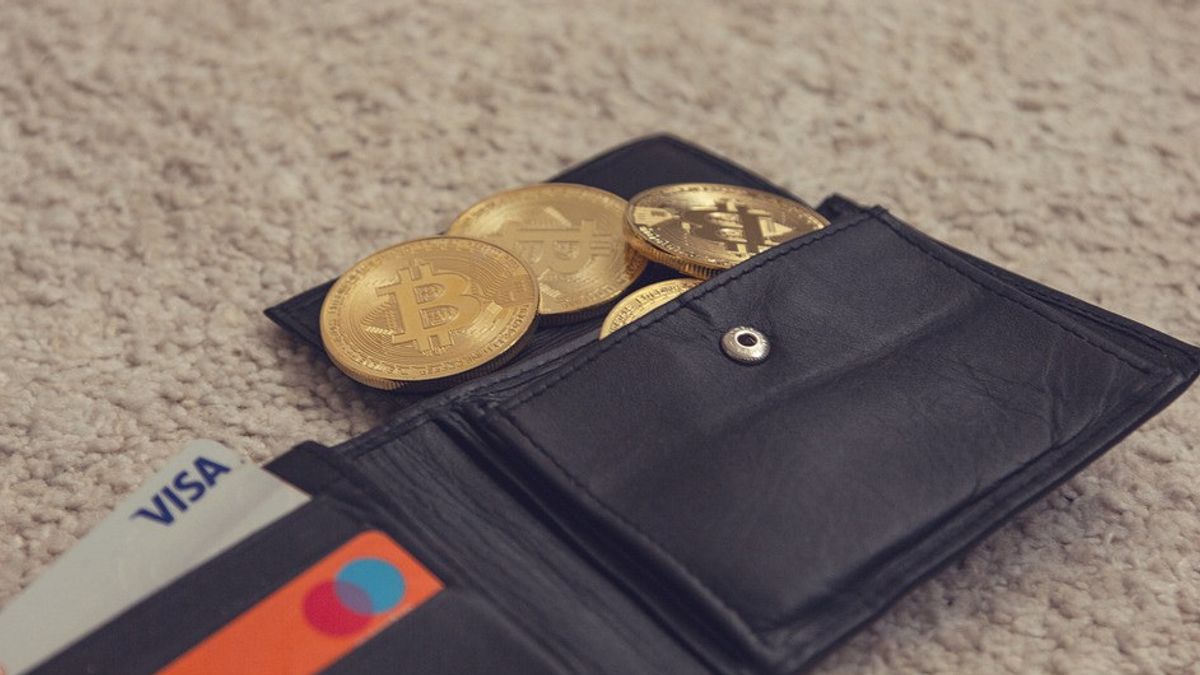JAKARTA – Cryptocurrency exchanges and financial services companies will likely soon no longer be able to accept transactions via most major credit cards after the company ceased operations for users based in Russia.
On Saturday, Visa, Mastercard, and PayPal announced that they would be suspending operations in Russia following the country's military action in Ukraine. Visa called Russia's actions an "invasion without reason". Mastercard meanwhile said its decision was aimed at supporting the Ukrainian people. The following day, American Express also made a similar announcement. They said they would stop operations in Russia and neighboring Belarus.
Apple Pay and Google Pay are also reported to have restricted services to some Russians, though users will likely not be able to use the credit card for transactions in the payment app either.
The decisions of the three major US credit card companies and others to stop operating in Russia appear to be despite efforts to comply with economic sanctions, which are being applied to certain Russian banks and their wealthy individuals.
Coinbase announced on Sunday, March 6 that it had blocked more than 25,000 wallet addresses “associated with Russian individuals or entities believed to be engaging in illicit activity”, but at the time of publication had not publicly discussed the credit card ban.
Following changes in company policy, the average Russian who uses a Visa or American Express credit card abroad or at home seems to no longer be able to use it for everyday transactions. Cards from Mastercard issued by Russian banks will no longer be supported by the company's network, while those issued by other foreign banks "will not work at Russian merchants or ATMs."
“We do not take this decision lightly”, said Mastercard, which has operated in Russia for more than 25 years, as quoted by Cointelegraph.
However, Russia's central bank issued a statement last Sunday saying Mastercard and Visa cards will "continue to operate in Russia as usual until their expiration date," while users can use ATMs and make payments.
It is not clear how the Central Bank of Russia reached this conclusion in light of the statements from the credit card companies above. However, they acknowledge that cross-border and direct card payments abroad will not be possible.
Although the company did not provide an exact timeline of when operations would stop completely, at least one cryptocurrency exchange warned users about the change, which is likely to affect many Russian users.
On Tuesday, March 8, Binance announced that starting Wednesday, March 9, the exchange will no longer be able to accept payments from Mastercard and Visa cards issued in Russia. Binance also doesn't accept American Express.
Presumably, all consumers who wish to purchase crypto through an exchange with a credit card issued in Russia from one of these companies will not be able to do so immediately, although peer-to-peer transactions appear to still be available.
There was a mixed reaction from social media to the decision, but many claimed that credit card companies could help Ukraine at the expense of Russia economically. But they also sacrificed Russian civilians who had no voice in their country's military actions.
“Preventing Russian citizens trying to flee Russia from accessing their money is a crime,” said Marty Bent, co-founder of cryptocurrency mining company Great American Mining. “Visa and Mastercard [dig] their own graves by politicizing their products and pushing people around the world towards Bitcoin.”
"For someone living in Russia, the card still works, but you can't leave because you won't be able to pay anything", said Twitter user Inna, who claims to live in Moscow.
VOIR éGALEMENT:
While the severance of Visa and Mastercard is a significant blow to Russia and its residents, reports suggest that the country may be turning to payment systems from China such as UnionPay.
These payments are accepted by the peer-to-peer cryptocurrency exchange Paxful. Russia's central bank also has its own Mir card for payments within the country and in nine countries including Belarus and Vietnam.
The regulator has yet to issue guidelines for cryptocurrency exchanges aimed at cutting off Russian users from trading their coins. Both the United States and the European Union have signaled that they would look at Russia potentially using transactions in digital currencies to evade sanctions.
Leaders on many exchanges, including Kraken, have issued statements saying they will comply with government guidelines, but not unilaterally block all Russian users.
The English, Chinese, Japanese, Arabic, and French versions are automatically generated by the AI. So there may still be inaccuracies in translating, please always see Indonesian as our main language. (system supported by DigitalSiber.id)















